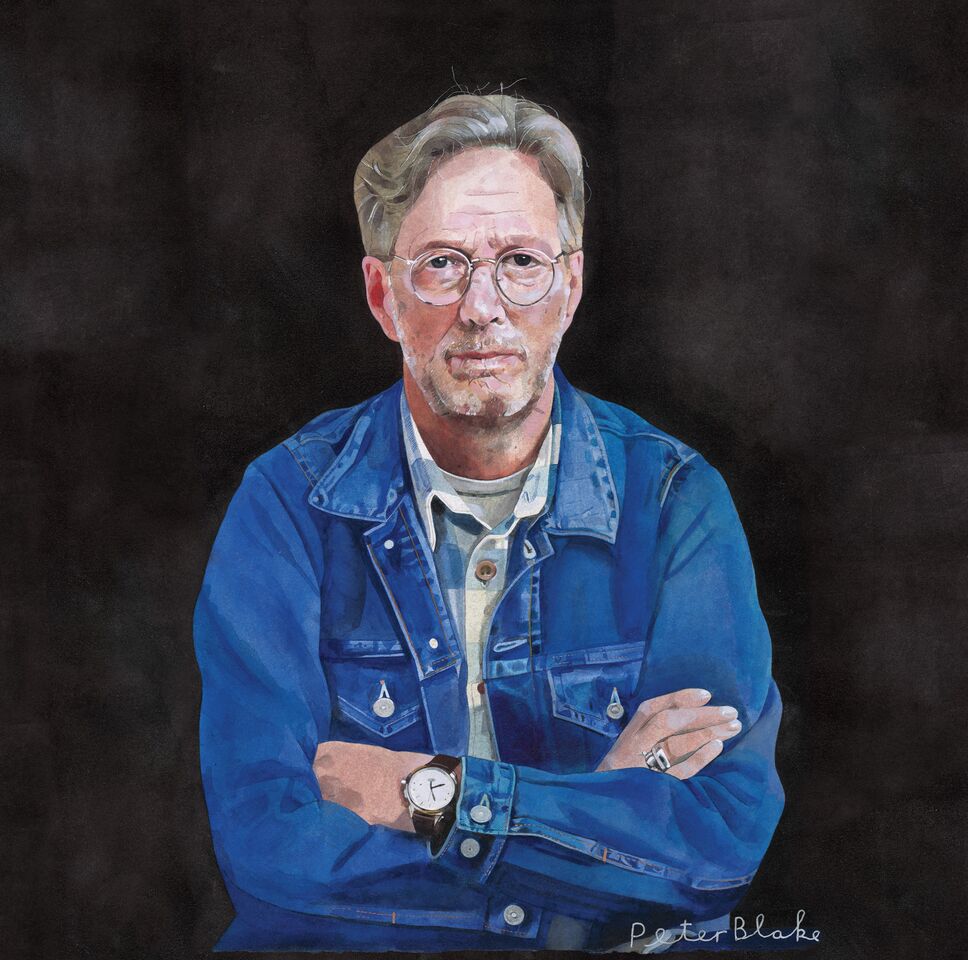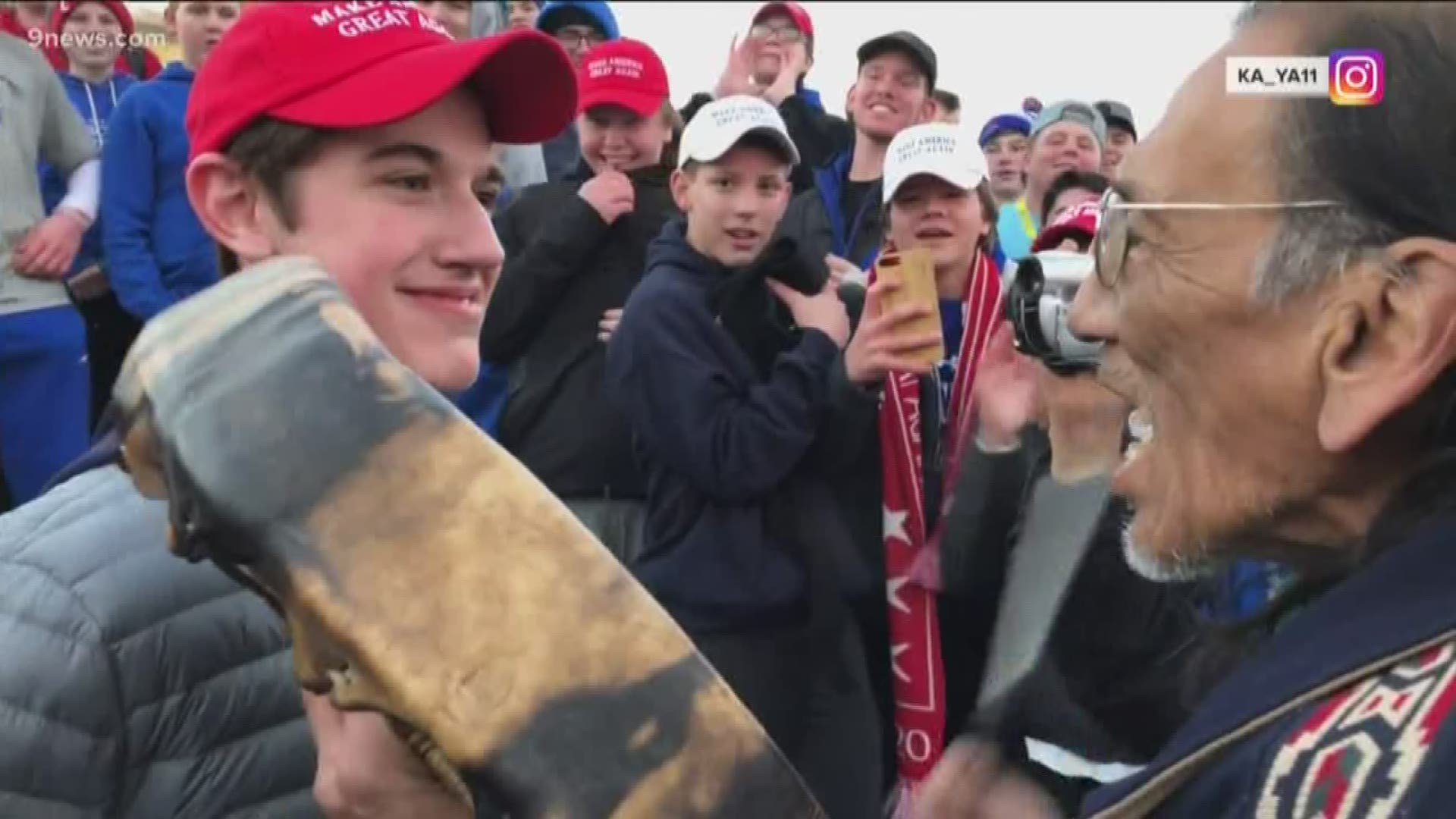
Rock fans have become keenly aware of the mortality of their idols lately. So, it seems, have the idols themselves, including 71-year-old Eric Clapton.
"A lot of pals around my age seem to be kicking off," says Clapton, speaking from his home in England. It's a few weeks before Prince left us at just 57, and already, 2016 has brought the deaths of Glenn Frey, Maurice White, Paul Kantner and Clapton's fellow British legend David Bowie, all in their 60s and 70s.
Clapton, who says he didn't know Bowie well — "I only met him a few times, and we never worked together" — had lost other friends and colleagues in recent years; his last album, 2014's The Breeze, An Appreciation of J.J. Cale, was an homage to one in particular. Cale's death in 2013 "was really heavy for me. Then it seemed to be every other week, we'd lose someone."
Clatpton's new album, I Still Do, out May 20, was initially conceived, in fact, "as an homage to a family member, an old auntie who passed away a couple of years ago. She used to say that she (had) liked me as a little boy, 'and I still do.' But that ended up just being the title."
![635980565005736593-clapton.jpg [image : 83979120]](http://www.gannett-cdn.com/media/2016/05/05/USATODAY/USATODAY/635980565005736593-clapton.jpg)
Musically, I Still Do is certainly rooted in the past, but not in a mournful sense. There is a reading of the wistful standard I'll Be Seeing You, which Clapton recorded "to say goodbye to all these people," and as a tribute to famous interpreter Billie Holiday, a favorite. But there's a raw vitality in the bracing, blues-soaked tracks, which reunited Clapton with renowned producer Glyn Johns, who teamed with him on the 1977 classic Slowhand.
who teamed with him on the 1977 classic Slowhand.
By the time of that release, Clapton was already a legend, having played in the seminal bands the Yardbirds and Cream in the '60s — as well as John Mayall & the Bluesbreakers and, later, Blind Faith and Derek and the Dominos,
and, later, Blind Faith and Derek and the Dominos, who released one of rock's most enduring classics in Layla. Clapton has been a prolific solo artist and collaborator since; he's the only artist
who released one of rock's most enduring classics in Layla. Clapton has been a prolific solo artist and collaborator since; he's the only artist to have been inducted into the Rock and Roll Hall of Fame three times, for his solo output and his work with the Yardbirds and Cream. He has won or shared 18 Grammy Awards, and placed No. 2 on Rolling Stone's list of the 100 Greatest Guitarists. (Only Jimi Hendrix bested him.)
to have been inducted into the Rock and Roll Hall of Fame three times, for his solo output and his work with the Yardbirds and Cream. He has won or shared 18 Grammy Awards, and placed No. 2 on Rolling Stone's list of the 100 Greatest Guitarists. (Only Jimi Hendrix bested him.)
Clapton reunited with Johns — also noted for his work with the Rolling Stones, Led Zeppelin and The Who — when they "met up a couple of years ago and realized that all this time had gone by," Clapton recalls. "We were having dinner and I said, 'We should do something again.'"
Johns elaborates: "When Eric became sober" — the singer/songwriter/guitarist gave up drugs and alcohol in the '80s, after widely publicized struggles — "he stopped seeing all the people he had been hanging out with. I was very straight myself, but I understood, though I missed him as a pal."
Once the two were back in the studio, Johns says, "my principle was to capture him playing (guitar) live as much as possible. Eric is probably the most inspirational player I've worked with. He's a very emotive player — it goes straight from his heart to his fingers. His brain doesn't get in the way. And he's playing and singing as well as he ever did. In my view, actually, he's really developed as a singer."
The men had a shared goal for the album, which includes originals and covers, among the latter songs by Cale, Bob Dylan and Robert Johnson. "Glyn and I both like variety," Clapton says. "Every song is in a different key. That's just the way I like to hear things. It's petty, in a way, but if I hear three songs on an album in the same key, it will annoy me."
In his personal life, Clapton has learned to value stability more. He has been married since 2002 to the former Melia McEnery, an American, with whom he has three daughters ages 14, 13 and 11. (He has one older daughter from a previous relationship, and he tragically lost a young son in 1991, which inspired his hit song Tears In Heaven.)
an American, with whom he has three daughters ages 14, 13 and 11. (He has one older daughter from a previous relationship, and he tragically lost a young son in 1991, which inspired his hit song Tears In Heaven.)
"We live out in the country," Clapton says. "My girls go to school and meet other kids who will talk about a certain pop star, and that has its own life. What I try to do is redirect by playing in the background or having music in the background — blues, country music, New Orleans jazz, opera, classical. I think it's important that they hear old music."
Clapton considers the USA "my spiritual home, because that's the music I grew up with — though I'm also very English." He has been following the American presidential campaign from abroad with interest. "I used to wind my wife up, saying he's the right man for the job."
And whom would that be? "You know who I'm talking about," Clapton says. "I would say that to make her crazy, though I've stopped doing that now. I've got a lot of relatives in Ohio, so I could get in severe trouble."
Rolling Stone contributor Anthony DeCurtis, who won a Grammy for his liner notes for the 1988 Clapton box set Crossroads, sees a link between the rock veteran's contented domestic life and his creative endurance. At the height of Clapton's addiction, DeCurtis observes, "he was in as much danger as you could be in. People talked about going to his house and just trying to get him to come out. He's really turned that around, and allowed himself to settle into a life where he's rewarded not only by making the music he wants to make, but also with the home life he wanted. It seems to be a happy ending, personally and artistically."
who won a Grammy for his liner notes for the 1988 Clapton box set Crossroads, sees a link between the rock veteran's contented domestic life and his creative endurance. At the height of Clapton's addiction, DeCurtis observes, "he was in as much danger as you could be in. People talked about going to his house and just trying to get him to come out. He's really turned that around, and allowed himself to settle into a life where he's rewarded not only by making the music he wants to make, but also with the home life he wanted. It seems to be a happy ending, personally and artistically."
Clapton doesn't tour much these days, preferring to spend time at home. "I'll perform from time to time, but performing and traveling are intertwined, I'm afraid." He has had "some health issues going on in this year, some trouble with my hands and back," but he tries to stay fit, "to get away from sugar and wheat and preservatives. My wife has been keen on juicing, with kale, hardcore stuff."
Being a father, he says, "keeps me trying to be healthy. Otherwise, I'm just baggage. I don't want to be a nuisance; I can't be someone they're going to have to tow around. ... I suppose the way it works for me is that I try to keep my side of the street as clean as possible. I have a will, I stay current. And I try to pay a little attention to the legacy I'm leaving, you know?"


![Sir Eric Clapton - Book Launch Party [image : 84138440]](http://www.gannett-cdn.com/media/2016/05/09/USATODAY/USATODAY/635983932530485515-Eric-Clapton-with-wife-Melia-McEnery.JPG)
